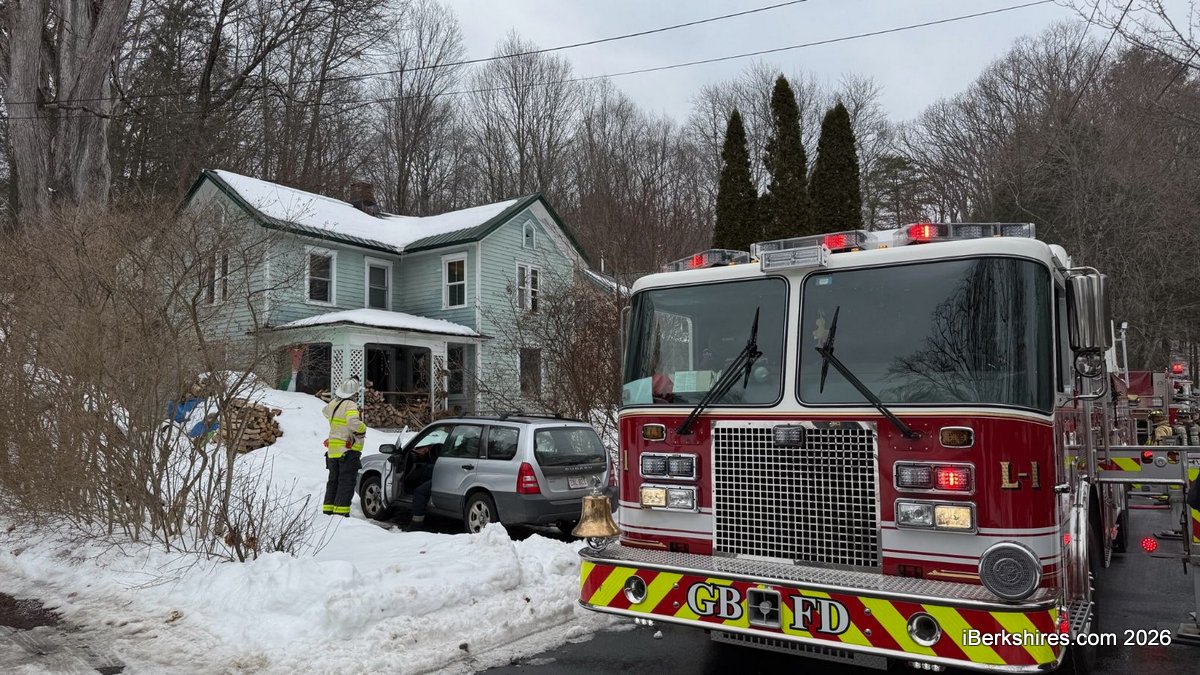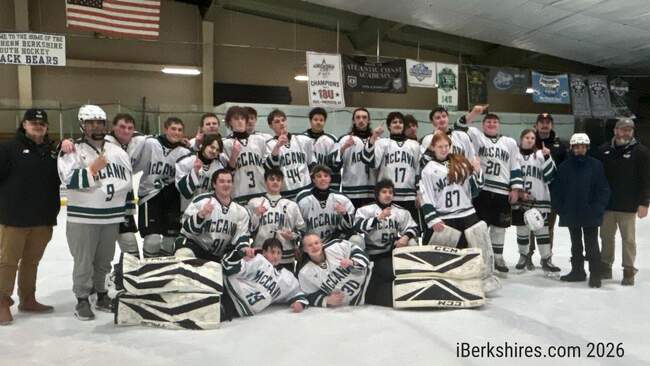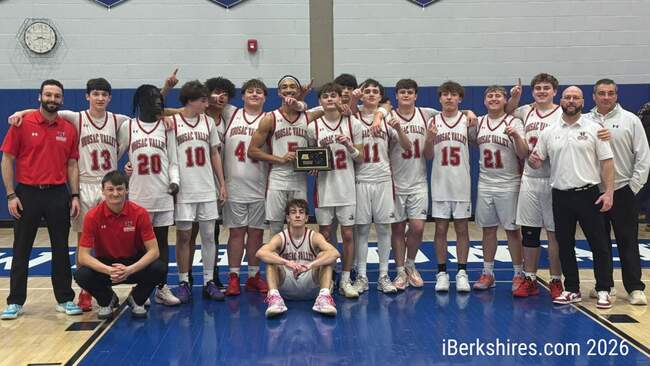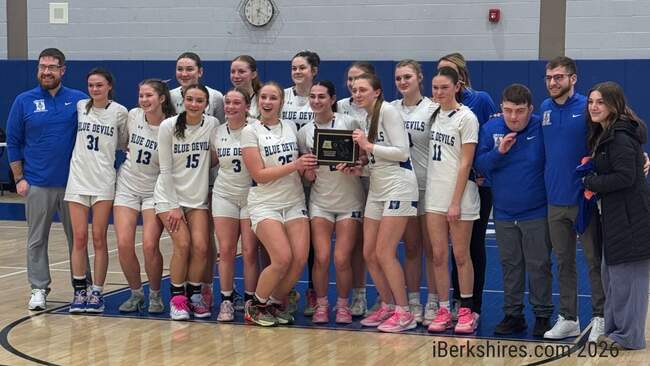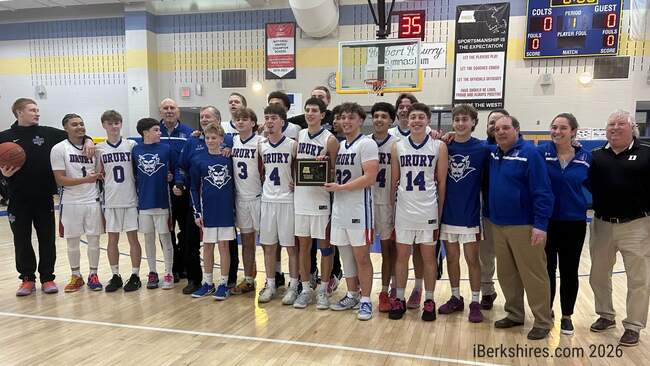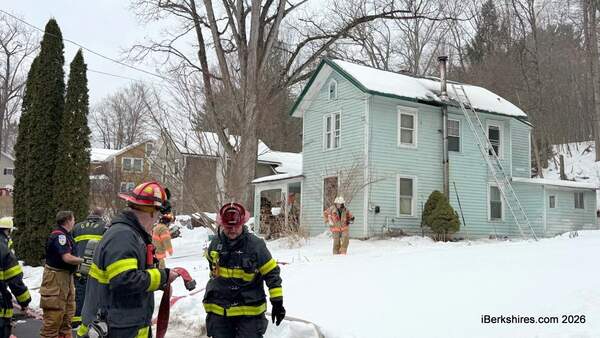The True Story of Bissell's Ride in 1775
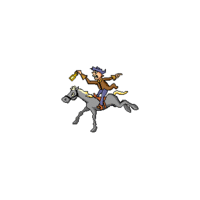 |
HINSDALE, Mass. — The town of Hinsdale celebrates its 200th anniversary this year and that is a cause for joy, a statement of the enduring qualities of Berkshire County history.
The town naturally wants to honor the prominent citizens of its past, including a man named Israel Bissell, whose grave rests in the local cemetery. For some 70 or 80 years now, Hinsdale has believed that Israel Bissell was a Revolutionary War hero who carried an alarm message to Philadelphia in 1775 after the battles of Lexington and Concord.
It is unfortunate that no one has found any documentary evidence to support that claim, so it has become necessary to mount a search of the records to determine the facts. There are 345 miles from Watertown to Philadelphia, and the newspapers of the day show that the news of Lexington was carried that distance in five short days.
Some, but not all, of the messages copied along the way show the name "Israel Bissell," while others have a distorted version of "Train" or "Trail Bissell," suggesting errors in the copying of the name as it passed through many hands. There is no evidence that a man named Bissell actually accompanied each of the messages. In fact, it would have been physically impossible for a single horseman to travel such a distance in five days at the standard express-rider's rate of 2 to 4 miles an hour. Only by using relays of fresh riders and horses would such a ride have been possible, and no doubt regular post riders carried the message to Philadelphia in that manner.
Israel Bissell's name appears in the early versions of the message that a series of riders carried south, all the way to New York, Philadelphia, Annapolis, Williamsburg, Va., and Charleston, but he himself did not go with those papers and was safe at home in Connecticut. Not one of the recipients of the message has left us with any remarks to support the claim that a man named Bissell actually delivered it in person.
New evidence from Massachusetts archives shows clearly that the initial rider's name was not Israel Bissell at all and that he rode only from Watertown to Hartford, Conn., while other riders took the news south.
On the morning of the Lexington battle, Col. Joseph Palmer of Watertown gave a message to the post rider and charged him "to alarm the Country quite to Connecticut." He did not give an order to ride to Philadelphia, which would have been much too far and of little use as an alarm. From Connecticut, the contents of the message became simply an important news item to be circulated throughout the colonies.
The horseman was a post rider named Isaac Bissell and he lived in Suffield, Conn. He rode off and spent the next six days traveling through Connecticut, doing what he was ordered to do. Which is proof enough that he did not continue on to Philadelphia. His account in the Massachusetts Archives is quite clear about this. In July 1775, Isaac Bissell petitioned the Provincial Congress of Massachusetts for his six days of expenses "to Hartford," claiming two pounds and one shilling (Massachusetts Archives, vol. 138, p. 191a). The Congress approved payment and then adjourned, leaving Bissell unable to collect his money.
So, in March 1776, he petitioned Col. Palmer for help and wrote, "Sir you may Remember when Lexinton Fite was you gave me an Express to Cary to Hartford in Connecticut which I did," adding, "I think I Earn my money." He signed with the clear signature, "Isaac Bissell of Suffield." (Massachusetts Archives, vol 303, p. 162.)
Col. Palmer, who had given the original message, verified the rider's identity as Isaac Bissell and petitioned the government on his behalf. On April 23, 1776, the Massachusetts House of Representatives ordered payment to Isaac (not Israel) of two pounds, one shilling "in full for his Riding Express to Hartford iin Connecticut in April Last past." (Massachusetts Archives, vol. 283, p. 159)
The House published the resolution in its Journal for all to see (Journal of the House of Representatives of Massachusetts, vol. 51, part III, p. 165), a volume available at the Berkshire Athenaeum.
No one named Israel Bissell appears in the official record. The story of his remarkable ride was unknown until the 1920s and 1930s, when it surfaced in the secondary writings of several historians who invented the tale without providing any corroborating evidence. There is no account or petition from him, no record of payment for services, no document anywhere that attests to his being in Philadelphia and no statement from anyone who may have seen or known him. He is an unknown cipher.
His fame rests solely on an error in copying the name of Isaac Bissell of Suffield and the subsequent theories of historians who wrote their accounts before doing thorough research. If there was a man named Israel Bissell involved, some primary documentary source would be needed to prove it. So far none has been found. In the meantime, we should wish Hinsdale the best of fortune in her next 200 years. She may well continue without the myth of Israel Bissell's ride to Philadelphia, but, knowing how stubbornly persistent these legends can be, I would not bet any money on it.
Lion G. Miles of Stockbridge is a historian who specializes in Berkshire County history of the 18th century.
Tags: Colonials, local history, revolution,

